Who's Funding Who — A Deep Dive into the 9 Types of Startup Investors
Understand who funds startups, why they matter beyond capital, and how to choose the right investor

Raising capital is one of the most crucial and challenging aspects of building a startup. Without sufficient funding, even the best ideas can fail to take off.
But more important than just money are the people or organizations who provide it—investors.
In this blog, we’ll explore who startup investors are, why they’re essential to your growth journey, and a detailed breakdown of the key types of investors.
What is a Startup Investor ?
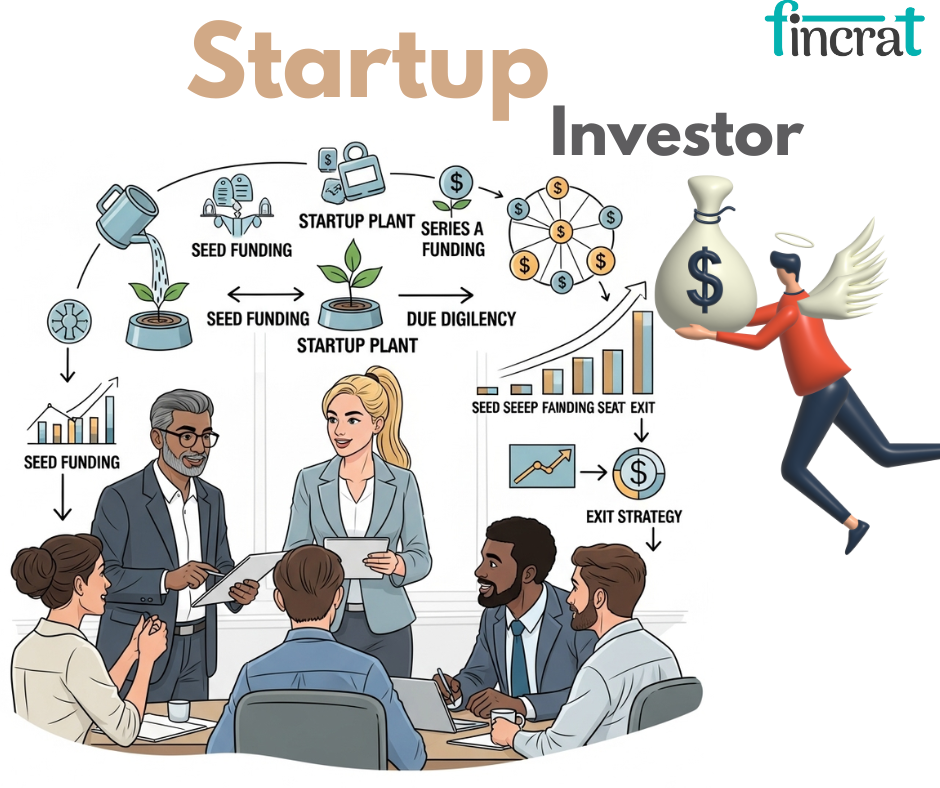
- Investors are individuals, groups, or institutions that allocate capital (money or resources) into a business, project, or financial asset with the expectation of earning a return or profit over time.
- In the context of startups, investors provide funding in exchange for equity (ownership), interest, or future returns based on the company's growth and success.
- Startups attract investors because of their high-growth potential.
- In return, investors help fuel this growth by providing not just funding, but also mentorship, credibility, and networks.
Why Investors Matter in Startup Funding ?
Investors are not only monetary contributors; they are strategic partners who can make a significant difference to a startup's expansion, trajectory, and long-term achievement.
1. Access to Capital
- Startups do not usually have enough internal resources to expand operations, build products, or move into new markets.
- Investors bridge this gap by providing the required financial inputs.
- 38%-40% of startups collapse because they run out of money.
2. Strategic Guidance & Mentorship
- Most investors, particularly angel investors and venture capitalists, have deep experience in starting and growing businesses. They provide:
- Strategic guidance
- Operating expertise
- Product-market fit critique
- Crisis management assistance
3. Network & Industry Contacts
- Investors have enormous networks of:
- Prospective partners
- Customers
- Suppliers
- Other investors
4. Credibility & Validation
- Having an investment from a well-known investor:
- Establishes credibility with future investors and stakeholders
- Elevates industry visibility
- Indicates that the business is worth investing in
- Startups backed by leading VCs have greater chances of obtaining follow-on rounds and strategic partnerships.
5. Fueling Innovation and Speed
- With the backing of investors, startups can:
- Roll out products quicker
- Attract talent at the top of the market
- Spend money on research & development
- Aggressively enter markets
6. Accountability and Priority
- Investors usually demand reporting, KPIs, and financial statements.
- This increased level of accountability has the ability to keep startups more focused, mission-driven, and cost-effective in execution.
7. Exit Opportunities
- Seasoned investors assist in the planning of exit strategies like:
- IPO (Initial Public Offering)
- Acquisition or merger
- Secondary sales
- These exits not only reward founders but also bring back profits to investors, making the ecosystem sustainable.
The 9 Types of Startup Investors You Should Know
Now let’s break down the major types of startup investors you’ll encounter, from self-funding to private equity and beyond.
- Founders (Bootstrapping)
- Friends and Family Investors
- Angel Investors
- Venture Capitalists (VCs)
- Corporate Venture Capital (CVC)
- Accelerators and Incubators
- Crowdfunding Investors
- Private Equity Investors
- Government and Nonprofit Investors
1. Founders (Bootstrapping)
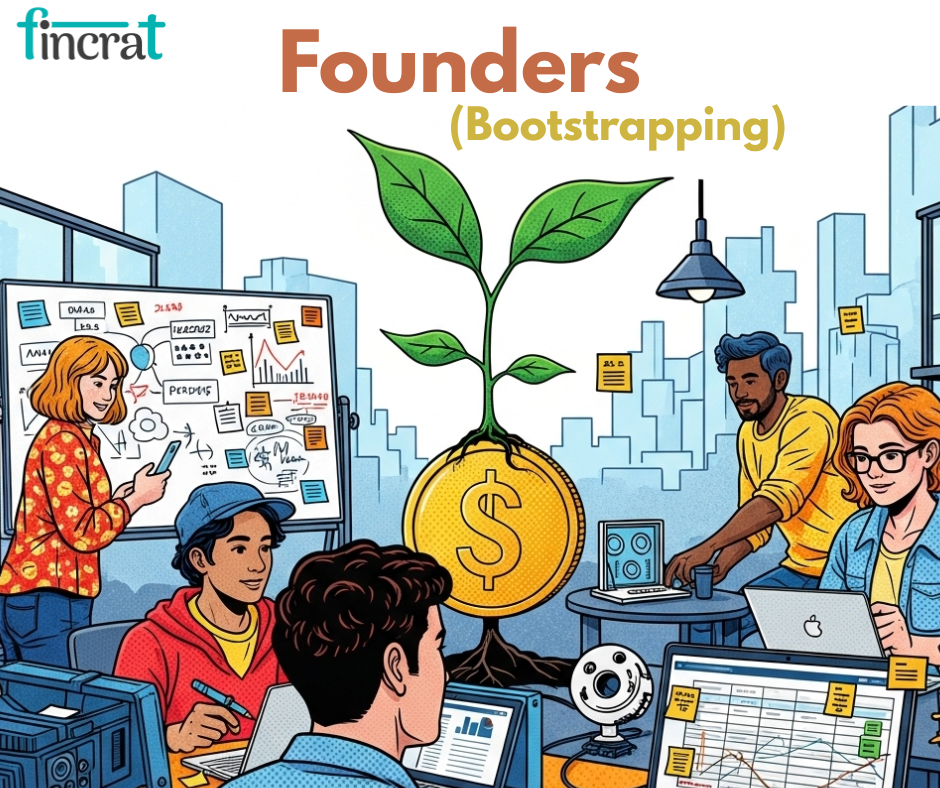
- Bootstrapping means that founders finance their own startup through personal savings, profits generated in the business, or small amounts of external funding.
- To be able to maintain complete ownership of the company while proving the business model at early stages.
- It shows the founder's dedication and less dependence on outside capital.
- 60%-77% of small ventures are first funded using personal funds.
- Like GitHub and Mailchimp, bootstrapped to profitability before accepting any outside money.
- Example: Mailchimp was bootstrapped for close to 20 years and had $800M in yearly revenue prior to being obtained by Intuit.
2. Friends and Family

- Initial investments from those who know the founder—such as relatives, friends, or acquaintances—who believe in the vision.
- To offer tiny amounts of early capital when formal investors do not yet care.
- It allows the founder to begin developing the product or experimenting with the concept with low risk and fewer formalities.
- The average friends and family round is between $10,000 and $150,000.
- These types of investors tend to invest on trust, not on data.
- Example: Jeff Bezos raised about $300,000 from his parents when launching Amazon.
3. Angel Investors

- Rich folks who invest their own money in early-stage businesses, generally in return for equity.
- To enable startups to achieve product-market fit or traction for subsequent funding.
- Angels tend to bring mentorship, industry connections, and legitimacy.
- Average angel investment: $25K–$100K per investment.
- Angels invest $25 billion in 70,000+ firms annually in the U.S. alone.
- Example: Reid Hoffman (co-founder of LinkedIn) has been an angel investor in Facebook, Airbnb, etc.
4. Venture Capitalists (VCs)
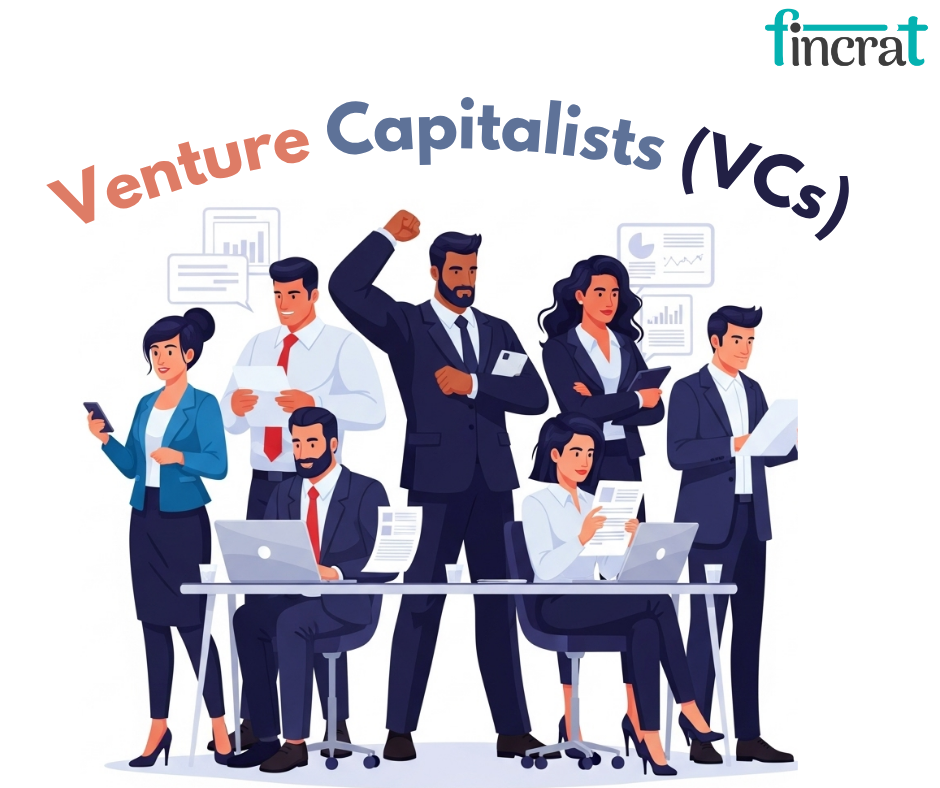
- Professional investment companies or individuals who invest pooled funds in high-growth startups.
- To rapidly scale businesses and realize disproportionate returns for limited partners (LPs).
- VCs not only infuse capital, but also networks, strategic advice, and enable aggressive scaling.
- Venture capital funded 43%-50% of U.S. public companies in 2023.
- Series A rounds can range from $2M to $15M.
- Example: Sequoia Capital bet early on Apple, Google, and WhatsApp.
5. Corporate Venture Capital (CVC)
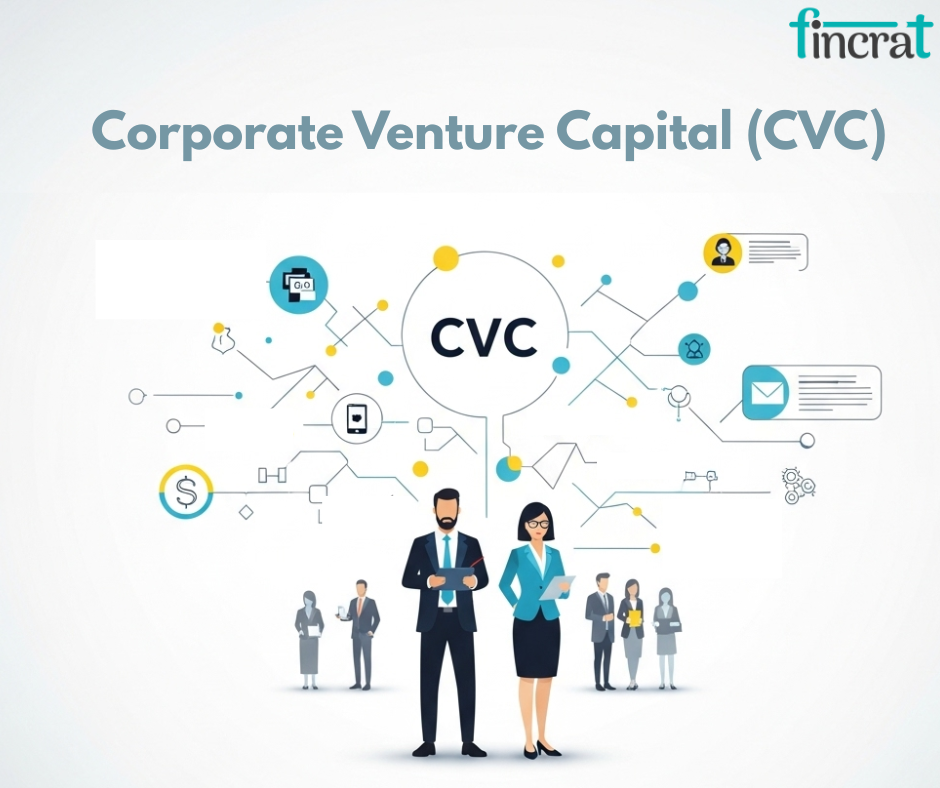
- Investments by big companies in startups that fit their industry or future strategy.
- To gain access to innovation, test new markets, and possibly acquire disruptive startups.
- Provides startups with more than capital—distribution, credibility, and long-term alliances.
- More than 50%-60% of Fortune 100 firms have a CVC unit.
- CVCs tend to invest in later rounds with a strategic motive.
- Example: Google Ventures (GV) has invested in Uber, Slack, and Nest.
6. Accelerators and Incubators
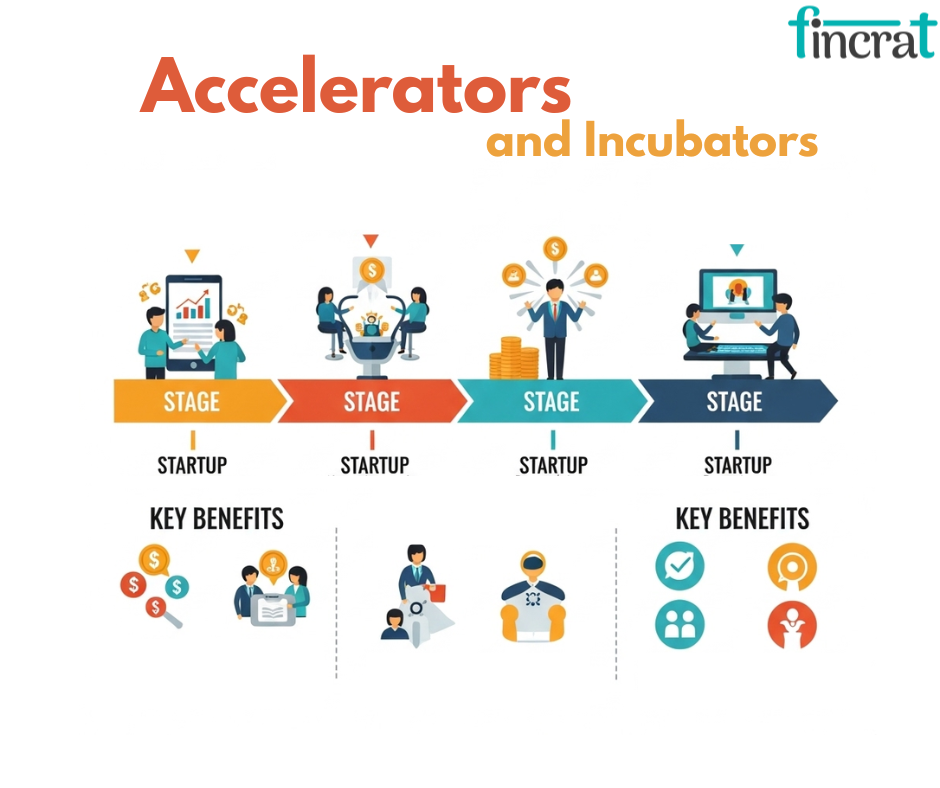
- Companies that nurture startups with seed capital, guidance, and resources, sometimes in return for equity.
- To enable startups to ramp up quickly and optimize their product-market fit.
- They provide systematic support, validation, and access to investors.
- Y Combinator startups have raised over $100B in capital.
- Accelerators typically take 5%–7% equity for $100K–$150K.
- Example: Airbnb, Dropbox, and Stripe all graduated from Y Combinator.
7. Crowdfunding Investors
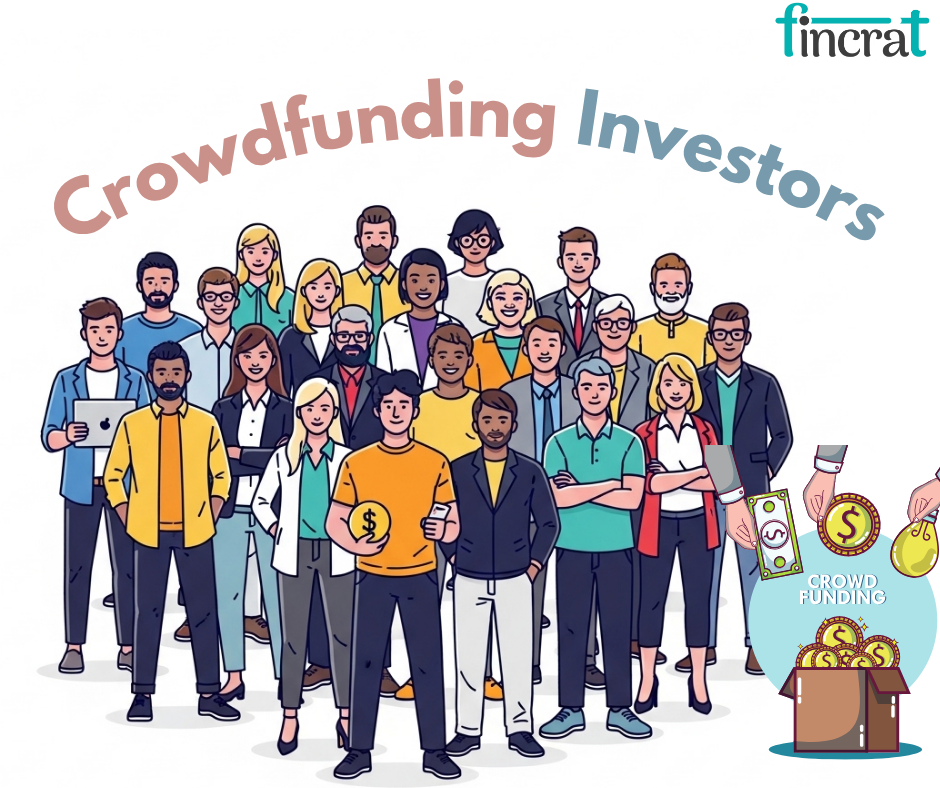
- Individuals who group together and fund through platforms (such as Kickstarter, Indiegogo, or SeedInvest) in return for rewards or equity.
- To confirm demand, raise capital, and create a community around the product.
- Decreases dependence on solo investors and creates brand champions early.
- Equity crowdfunding was legalized in the U.S. in 2016 (Reg CF).
- More than $100M was raised on Kickstarter in 2023 alone.
- Example: Oculus VR raised $2.4M on Kickstarter prior to being acquired by Facebook for $2B.
8. Private Equity Investors
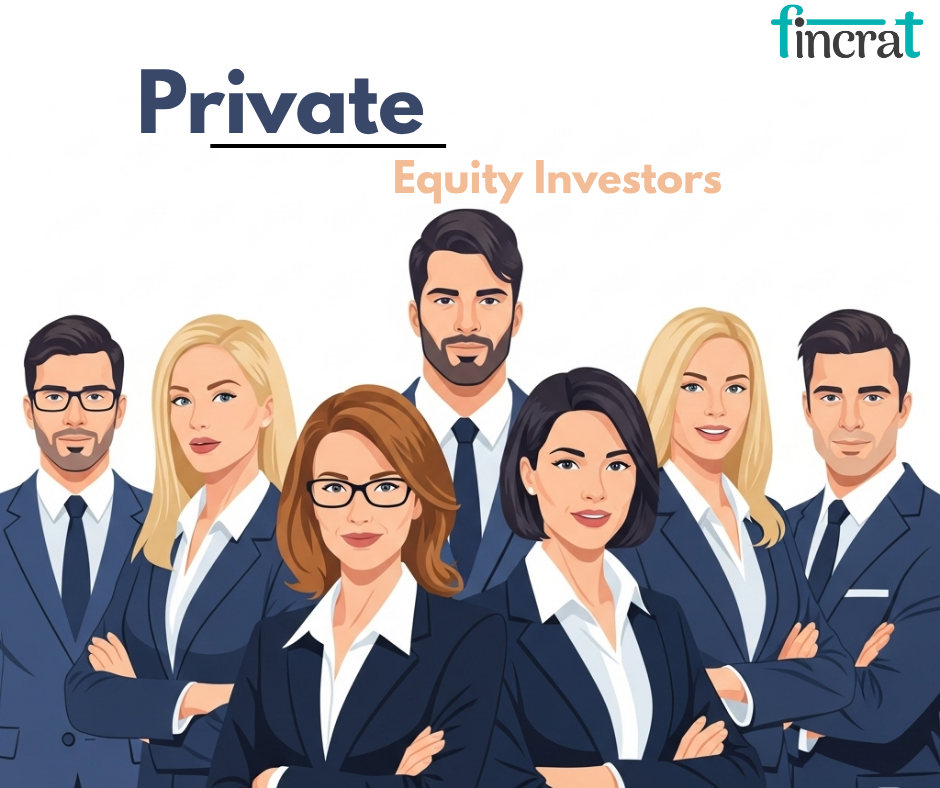
- Companies or individuals that invest in mature or later-stage startups to maximize growth, profitability, or IPO/acquisition readiness.
- To expand businesses further and build high returns through strategic management and financial reorganization.
- Suitable for businesses beyond the early stage requiring operational assistance and huge capital inflows.
- US PE-backed firms created 6.5%-7.5% of aggregate employment in 2023.
- PE transactions typically are $10M–$100M+.
- Example: Blackstone and KKR invest in growth-stage or undervalued startups seeking to scale or exit.
9. Government and Nonprofit Investors
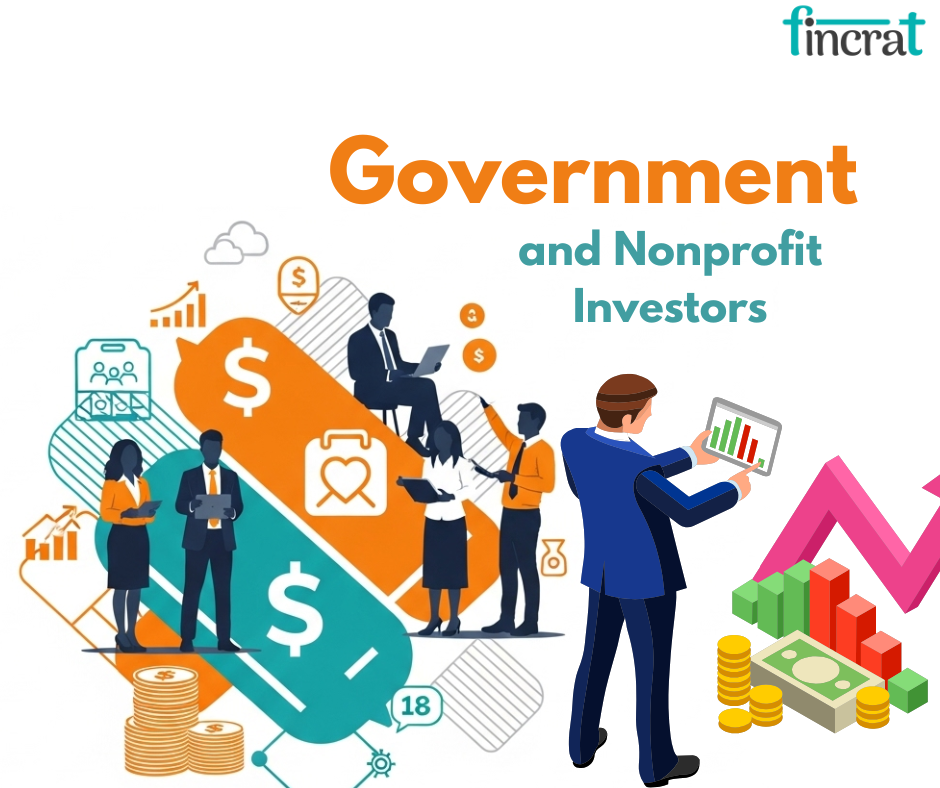
- Government or nonprofit grants, subsidies, and awards to foster innovation, research, or community development.
- To minimize economic barriers to early-stage, high-risk, or socially relevant ventures.
- Non-dilutive (doesn't take equity) and supports underfunded industries such as deep tech, healthcare, or climate tech.
- The U.S. SBIR program paid out $3.3B in 2023.
- A lot of European startups utilize Horizon Europe funding for R&D.
- Example: Moderna was awarded government grants to fund early-stage development of the vaccine.
Final Thoughts: Choosing the Right Investor for Your Startup
Choosing the right investor is about far more than just securing capital—it’s about finding a long-term partner who aligns with your vision, values, and growth goals. Different stages of your startup journey require different types of investors.
In the early days, founders often relied on personal savings or support from friends and family.
As the business gains traction, angel investors, accelerators, or crowdfunding may be ideal.
Once you're ready to scale, venture capitalists, corporate investors, or even private equity firms can bring in the big checks along with strategic expertise and market access.
It’s important to assess not just how much money you need, but also what kind of support—mentorship, networks, credibility, or industry insights—you’re looking for. Ultimately, the best investor is one who believes in your mission, challenges you to grow, and helps pave the way for long-term success, including a strong exit strategy. Choose wisely—because the right investor can transform your startup from a promising idea into a thriving business.
“ Money can grow a business, but the right investor can build an empire”

